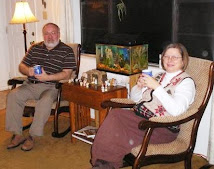 The definition of autodidact in its very simplest form is "a self-taught person." This is the idea I have in mind of autodidacticism—a self-taught person.
The definition of autodidact in its very simplest form is "a self-taught person." This is the idea I have in mind of autodidacticism—a self-taught person.
We often think of an autodidact as one who has learned a subject without the benefit of a teacher or formal education, but it seems that on one level, we are all autodidacts. No matter how good the teacher, or rigorous the education, each of us must exert some effort, however slight, to allow learning to take place.
No matter how excellent the instructor, the student must actively listen in order to ingest, digest, remember, and use the information. If one is not interested in learning, the best teachers and the most expensive schools will not suffice.
On the other hand, if one is obsessed with learning, nothing will prevent that one from seeking out knowledge.
Much autodidacticism takes place through the medium of books, yet this is not strictly self-teaching. The author is a teacher in absentia. On the other hand, without the autodidact's effort in reading and understanding, no learning (and therefore no teaching) takes place.
For more on learning and teaching, see my previous post here.
Although I have had many fine teachers over the years, both in school and out, I consider myself an autodidact.
Have I sufficiently muddied the waters concerning the meaning of the word "autodidact"? If so, I have accomplished my purpose.
Seriously, though, I love the word, and so does Detective Robert Goren of Law and Order, Criminal Intent, who has used it on at least two or three shows that I've seen.
Etymology: [from Greek auto-, auto, self and didaktos, teaching]
Other forms: autodidactic, autodidactically
 Unfortunately, the house was torn down in favor of apartment buildings in the 1980s.
Unfortunately, the house was torn down in favor of apartment buildings in the 1980s. 





























































